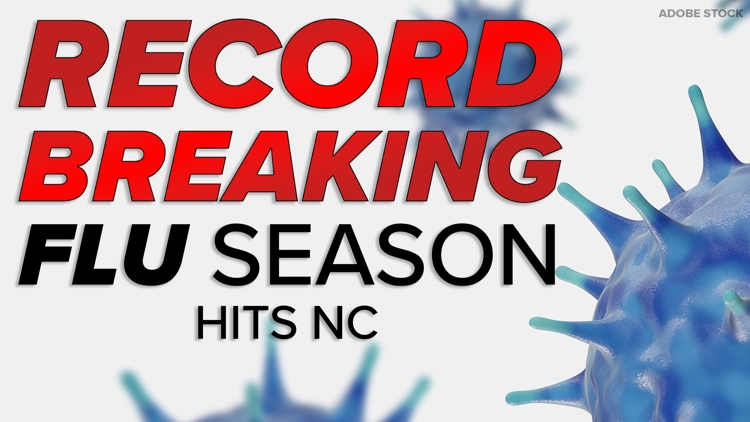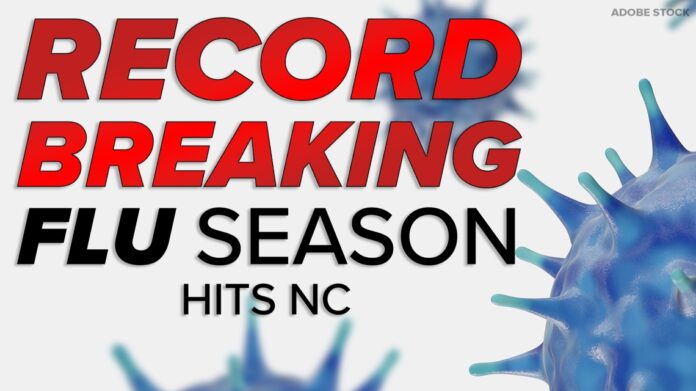
North Carolina’s deadliest flu season in at least 16 years claimed 500+ lives. Health officials urge early vaccination as rates continue to drop.
GREENSBORO, N.C. — When spring rolls around, the focus on sickness normally turns to allergies. In North Carolina, it hasn’t shifted from the flu.
This year’s flu season was deadly, in fact, the deadliest the state has seen in at least 16 years.
More than 500 people died from flu complications, according to the North Carolina Department of Health and Human Services.
This season set a grim milestone, marking the highest number of flu-related deaths since statewide tracking began in 2009.
“It’s very tragic obviously, to have that many deaths reported from a flu season,” said Dr. Zack Moore, state epidemiologist at NCDHHS.
“It is very concerning and what we hope with um that what has happened in the background is that the vaccine development has understood like if there’s been that drift and change in the circulating virus to update the vaccine and use this information that we have to really educate the population saying that this was a really horrible year and flu,” said Dr. Cynthia Snider, medical director for infection prevention at Cone Health. “Please don’t let, don’t be a number, don’t be a statistic of of like getting severe illness and receive the vaccine for this coming flu year.”
Flu deaths surged nearly 58% compared to last year.
“We wish that we had flu vaccines that were like our measles vaccine where we’re talking 97% protection with the two dose series, but with flu, it’s usually more in that 50% range, so, you know, reducing your risk, cutting your risk in half of of getting flu,” Moore said. “And I’ll add that unfortunately, our flu vaccine coverage numbers have been drifting downward.”
That trend is backed up by data from the Centers for Disease Control and Prevention. In 2020, nearly 62% of children nationwide received the flu shot. This season, that number fell to around 48%.
For Triad-area doctors, the impact was clear and alarming.
“Cone Health had like very high numbers of patients hospitalized with flu, many of them requiring like ICU,” Snider said. “It was very reminiscent of I think what we saw in 2009, where it was maybe like a younger age group of folks who had more severe disease.”
What’s concerning the state’s public health department is the future of its vaccine programs. Federal funding cuts have already cost the department $100 million, and another $230 million remains at risk.
“If those programs were to go away, it would mean that we would lose our ability to be able to track what kinds of infections are circulating in our communities and to be able to respond quickly … I worry that we’ll see a lot more cases and outbreaks of diseases,” Moore said.
Doctors said they are already encouraging patients to get their flu shots early this fall to help prevent another deadly season.
RELATED: Egg prices increase to record high despite Trump’s predictions and bird flu outbreak slowing



